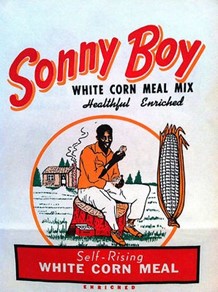
The ASCAP Ban (Continued)
Launched on November 21, 1941, as a vehicle to promote King Biscuit Flour, it aired on the KFFA radio in Helena, Arkansas, on weekdays from noon to 12:15 p.m. The show featured "Sunshine" Sonny Payne, the now-legendary radio announcer, alongside Rice Miller, a blues musician who soon became better known by his radio name, Sonny Boy Williamson.
He was a superb blues harmonica player and tunesmith, well-known throughout the Mississippi Delta region for his witty blues compositions and flamboyant showmanship. Miller organized a small blues combo that included guitarist Robert Lockwood, pianists Robert "Dudlow" Taylor and Willie Love, and drummer Peck Curtis. The group played on KFFA five days a week at noon, when most of the Delta's field hands were taking their lunch break, and then traveled to evening engagements in the region. At first, Rice Miller and his band did not get paid for their broadcasts; instead, they were allowed to announce their upcoming gigs. Later in the decade, they were paid modestly.

Sonny Boy Corn Meal
"King Biscuit Time" was a massive success among Black listeners. It developed such a large following that the Interstate Grocery Company began to market a new product called Sonny Boy Corn Meal; each bag had a large picture of a smiling Rice Miller, harmonica in hand, sitting on a giant ear of corn. King Biscuit Time enjoyed a lengthy association with KFFA, even though Miller had moved on by the late 1940s.
Elvis Presley's "Hound Dog"
The lyrics are about the animal "hound dog" and how it's no friend of Presley's because he's often crying, is not high class, and has never caught a rabbit.
Big Mama Thornton's "Hound Dog"
The lyrics are metaphorically about a "man," Although she refers to him as a hound dog, with lines such as "Daddy I know, you ain't no real cool cat" and "you ain't lookin' for a woman, all you're lookin' for is a home" she is speaking about a man.





